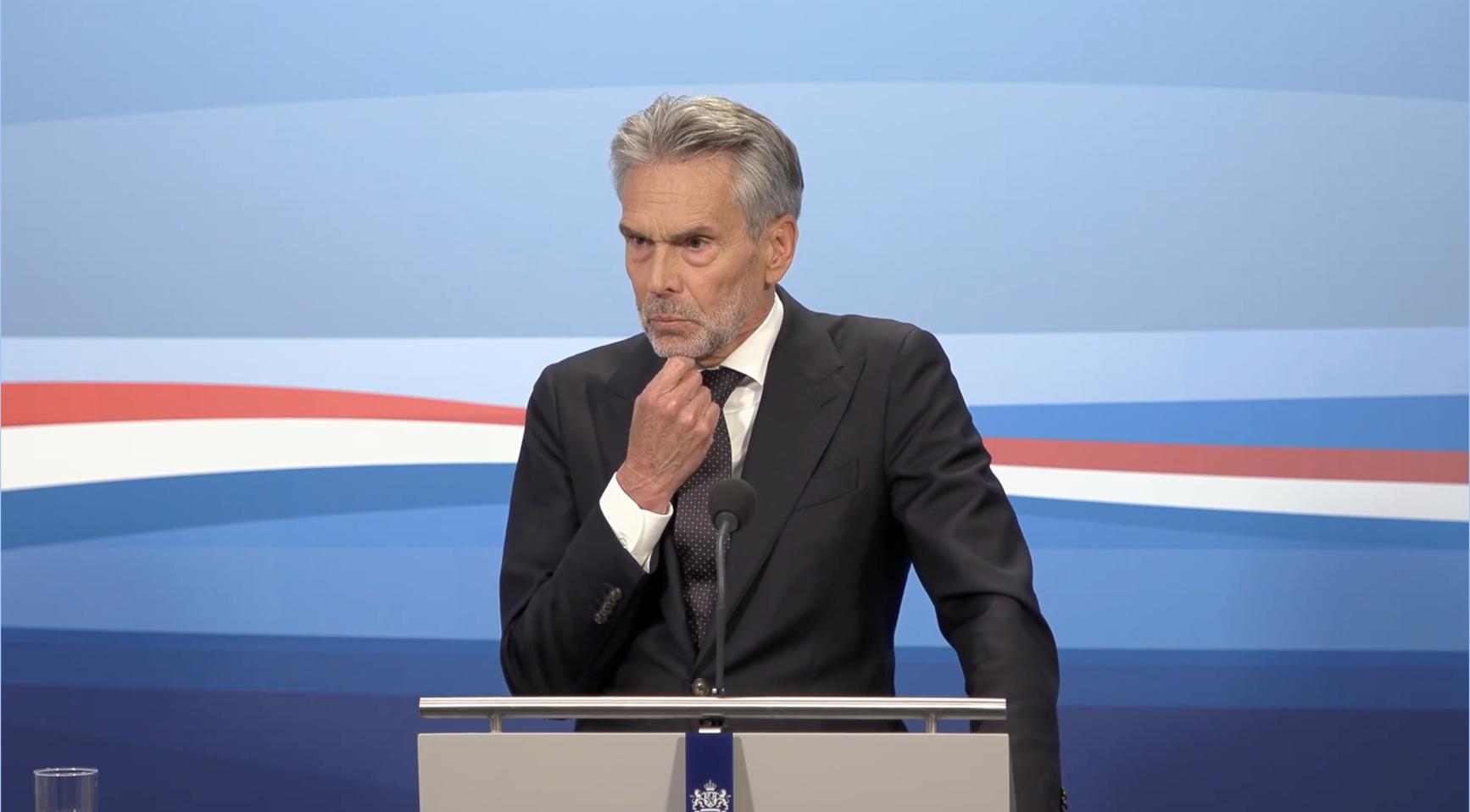A deepfake video featuring Prime Minister Dick Schoof is being used by fraudsters in Facebook advertisements to promote a fake investment platform, the The Dutch Consumers’ Association (Consumentenbond) warned Tuesday. The consumer rights group said the video, which falsely claims government backing and financial guarantees, is part of what may be the first large-scale deepfake-driven fraud campaign in the Netherlands.
The video appears to show Schoof, alongside NOS journalists, presenting a government-backed investment initiative. The fraudulent footage claims De Nederlandsche Bank (DNB) guarantees all transactions and promises stable household income through the platform. These claims, generated with artificial intelligence, are completely false.
According to the Consumentenbond, the video has been shown nearly 250,000 times to Facebook users. Viewers who click on the ad are directed to a fake website designed to look like a legitimate news outlet. There, users are asked to provide their phone numbers and are later contacted by individuals posing as investment advisers. The fraudsters push them to make an initial investment of 250 euros and then pressure them into transferring larger sums. Victims can lose thousands of euros within a short time.
Sandra Molenaar, director of the Consumentenbond, said her organization is alarmed by the method and scale of the scam. “We are deeply concerned about the rise of this type of fraud. Fraudsters are using artificial intelligence to manipulate both visuals and audio. The combination of well-known individuals, visual techniques, and financial promises makes the video dangerous. While not everyone will be convinced by it, people who are less familiar with digital media are especially at risk. They could suffer financial losses, and we want to prevent that through our warning.”
The Consumentenbond reported the advertisements to Meta before and received a response that the report would be taken seriously. However, the advertisements are still active. The organization noted that the scam appears to originate from a single advertiser account and said it should be relatively easy for Meta to remove the fraudulent content. Molenaar said the Consumentenbond has repeatedly called on Meta to take stronger action against fake ads and will continue to demand an immediate response. “Every hour counts,” she said. The Fraud Help Desk has also been informed.
